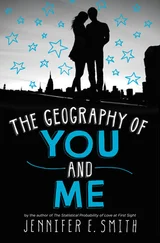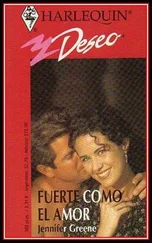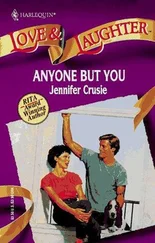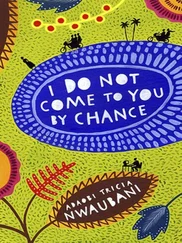“Now, I ain’t saying she a gold digger,” Tommy sang. Trey shoved his hands into his pockets and gave a hooting laugh. I rolled my cigarette between my fingers and announced, “If any of those parts are original, then I am the queen of Romania.”
“Dorothy Parker,” said Tommy, tipping the bottle of beer he’d snagged from the refrigerator toward me in a toast. “Nice.”
Tommy flicked his lighter and shielded the flame with his hand until my cigarette was lit. I inhaled, blew a plume of smoke into the starry night sky, and delivered my one-word assessment of our father’s new ladyfriend: “Bitch.”
“C’mon, Bets,” said Tommy. “Maybe she’s not that bad.”
“Oh, she’s that bad,” I assured him. I knew her type. India — not that I believed for a second that India could actually be her name — had made an effort during the meal, asking Tommy about his band, Dirty Birdy, and Trey about his daughter and me about my internship appraising European paintings for Christie’s. She let us know that she knew things about us, where we lived and what we liked and what our hobbies were: that Tommy played the bass and guitar, that I collected things — seashells and bottlecaps when I was little; antique compacts and cigarette cases now. She was polite; she was — or at least acted — interested. She’d laughed (“ha. . ha. . ha”) when she’d gotten ketchup on the sleeve of her blouse, and hopped up from the table to clear the dishes. All of this should have eased my mind, but there was a hardness about her, something calculated, flinty and unkind. I could see scars behind her ears, beneath her chin. The skin of her cheeks was too taut and her breasts were too big for her frame. Her hair was dyed, her nose was done, and I suspected tinted lenses were responsible for the luminous indigo of her eyes. Who are you, really, I wondered as she rinsed and dried plates and kept up her expert, cheerful chatter. Who are you? And what do you want with my dad?
“I bet her name’s really something like Tammy,” I told my brothers. Trey just shrugged, and Tommy said, in the calm way that made me crazy, “Trying to make something of yourself isn’t a crime.”
“Making something of yourself is fine,” I replied. “Getting a boob job, dying your hair, getting your nose done, changing your name, whatever. That’s all fine. I don’t object. But she should make her own money, instead of going after his.”
“Dad’s a big boy,” said Trey, thumbing his BlackBerry, probably to see if his wife had called or texted or sent pictures of the most recent adorable thing that nine-month-old Violet had done during the three minutes since he’d last checked.
“And he’s lonely,” said Tommy.
I exhaled. This was the truly infuriating part. If our father had serially discarded his wives, trading up for younger, hotter models, we’d have rolled our eyes and agreed that he was getting what he deserved with the world’s Indias. But our mother had left him. After all her time in Manhattan, her years as a stay-at-home mom, a PTA volunteer, a fund-raiser for cancer research and the preservation of historic churches, she’d fallen under the sway of her yoga instructor, one Michael Essensen of Brick, New Jersey, who, after a six-week sojourn in Mumbai, had renamed himself Baba Mahatma and opened a yoga center and spiritual retreat five blocks from our apartment. The Baba, as my brothers and I called him, started popping up in passing in my mother’s conversation: The Baba says Americans should eat a more plant-based diet. The Baba says colonics changed his life. A few months after she’d started taking classes, we would come home from school and find the Baba himself in the kitchen, in all his ponytailed, tattooed, yoga-panted splendor, dispensing wisdom over a pot of green tea. “Oh, hi, guys,” my mother would say, blinking like she was trying to remember our names. The Baba, who had a chiseled chin and an artificial tan and flowing locks inspired by Fabio, would give us an indulgent nod, pour more tea for both of them (never offering me or my brothers a cup), and continue talking about whatever cleanse or fast or ritual he was endorsing that week. At fourteen, I’d been able to identify his spiel as incense-scented nonsense, but my mother had believed every word of it, swearing to her friends (and, eventually, to the strangers she’d corner in the schoolyard or the dentist’s office or the fish counter at Russ & Daughters) that the Baba was magical, and that his ministrations had helped her survive the mood swings and hot flashes of menopause when the hormone therapy prescribed by the top doctors in Manhattan had failed.
My mother had been born Arlene Sandusky in a suburb of Detroit in 1958. She’d married my father at twenty-three, then moved to New York, where she’d had three children and become an enthusiastic baker of cookies and trimmer of Christmas trees, a woman who liked nothing better than taking on some elaborate holiday-related project — assembling and frosting a gingerbread house, or running the schoolwide Easter egg hunt. In the wake of her association with the Baba, she’d ditched her traditions and her Martha Stewart cookbooks. She’d grown her hair long and let it go gray. She’d swapped her designer suits and high heels for embroidered tunics and thick-strapped leather sandals, and traded her Bulgari perfume for a mixture of essential oils that made her smell like the backseat of a particularly malodorous taxicab, sandalwood and curry with hints of vomit. She’d gotten a belly piercing that I’d seen and a tattoo that I hadn’t — I hadn’t even been able to bring myself to ask where or of what —and, eventually, she began slipping the Baba tens of thousands of dollars. When my father’s accountants finally started to ask questions about what the Order of New Light was and whether it was, in fact, a tax-free C corporation, she’d announced her intentions to get a divorce and follow the Baba to Taos, where he was building a retreat offering intensive yoga training, raw cuisine, and a clothing-optional sweat lodge.
I came home from school one afternoon and found luggage lined up in the hall and my mother in her bedroom, packing. “I am renouncing the meaninglessness of the material,” she said, sitting on top of her Louis Vuitton suitcase to get the zipper closed. I pointed out that the meaninglessness of the material did not seem to cover the great quantity of Tory Burch tunics and Juicy Couture sweat suits that she had packed.
“Oh, Bettina,” she said, in a tone that mixed scorn and, unbelievably, pity. “Don’t be so rigid.” She kissed me, taking me into her arms for an unwelcome and musky embrace.
“Be good to your father,” she said, smoothing my hair as I tried not to wriggle away. “He’s a good man, but he’s just not very evolved. ”
After that, my mother communicated by letters and postcards, while my father became Topic A in the gossip columns and, when he started dating again, prey for single ladies of a certain age. There was the magazine editor famous enough to have been skewered in a movie, played by an actress who, in my opinion, was ten years too young and significantly too pretty to be a plausible standin. She was followed by a real-estate mogul with a face permanently frozen into a look of startled puzzlement, then a newspaper columnist, similarly Botoxed, who’d made a career out of being bitchy on the Sunday-morning political chat shows. In that realm of gray-suited, gray-faced men, it turned out that even a not-terribly-attractive fifty-two-year-old could pass herself off as a babe if she wore pencil skirts, kept her hair dyed, and made the occasional reference to oral sex.
Even when my father was technically attached, it didn’t stop other women from trying. There would be a hand that lingered on his forearm, a cheek kiss that ended up grazing his lips, a business card with a cell phone number scribbled on it, pressed into his palm at the end of a night. My father had resisted them all, the waitresses and the young divorcees and the actress-slash-models… which was why it made no sense that he’d fall for this hard-edged, new-nosed, fake-named “India,” who was no more in her thirties than I was the winner of America’s Next Top Model.
Читать дальше












